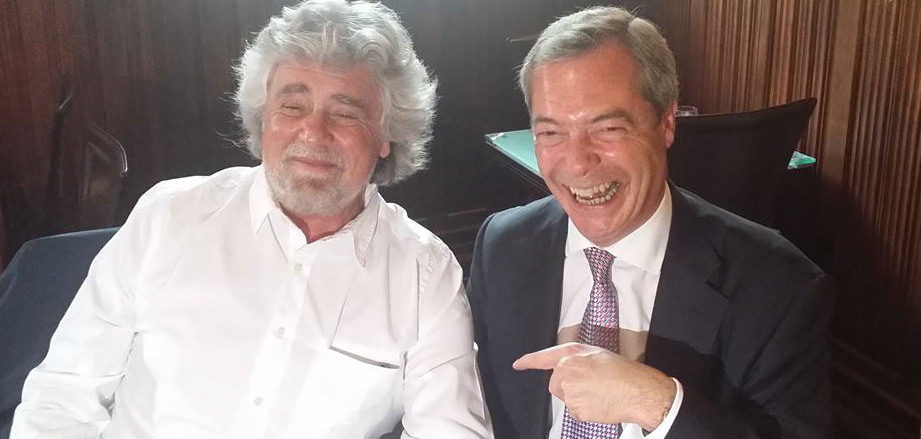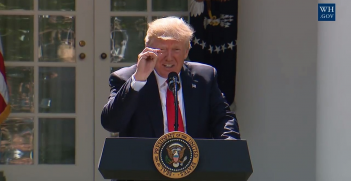Europe’s elections – leaving established parties behind?

In late May 2014, voters across Europe elected new members of the European Parliament (EP) in the largest transnational election in the world – from 28 countries and with almost 400 million voters.
These elections have been described as an earthquake because the extreme right gained up to 25% of the votes cast in some EU states. The EU, it is claimed, is lurching dangerously to the extreme right, with racist parties gaining ground in almost every state. Although there is some truth in this claim, the situation is somewhat more complex, and possibly more serious, than this.
One way of understanding what is happening is to recognize that discontent and anger have been spreading across Europe for some time. Extreme right parties have been growing in influence at local and regional levels for some years and, in the case of the French Front National, for some three decades. At the same time, there has been increasing disenchantment with the EU as a potential solution to Europe’s problems. Parties and media opposed to the very existence of the EU, what are broadly known as Eurosceptics, have increased in voice and impact. However they are not the only parties on the European landscape that are anti-EU or Eurosceptic. There are several parties on the extreme left, too, that also are deeply antagonistic to the EU. Even within the mainstream of politics, the British Conservatives and many in the British Labour Party have expressed opposition to UK membership of the EU. What Europe’s leaders will do about this development is what many observers are now wondering.
What is striking about this round of voting is the fact that so many European are turning their backs on established parties. There is a lack of confidence among at least one quarter of voters in the state’s ability to deal with issues of concern. What is evident in these elections is a marked shift away from traditional voting patterns across Europe in many EU countries.
Combined with this decline in trust in mainstream parties, there is declining confidence in the European Union to solve the problems of unemployment and economic crisis. This points to severe challenges of EU governance in an era of mixed sovereignty, where the legitimacy of both the nation states and the EU institutions arehighly contested and where EU policy prescriptions to overcome the crisis seem to lack effect. The rise of populist parties is witness to the citizens’ discontent. Euroscepticism is on the rise, as we have seen in the elections to the EP. Yet even the Eurosceptic voice is not a united one across Europe. Some contest the political underpinnings of the EU but wish to continue to take advantage of its economic benefits. Others wish to leave the EU entirely and go it alone.
Just as Eurosceptics are not a coherent force across Europe, neither is the Far Right, due to national differences and ideological divergences. The elections certainly saw an increase in votes for far right parties – with not only more votes, but also more parties than ever before. These parties polled third in Austria, Greece and Hungary, for example. Some raced ahead to receive more votes than the incumbent government party. In the UK, the UK Independence party (UKIP) received more votes than David Cameron’s Conservatives. In Denmark, the Danish party did better than the Social Democrats of the Prime Minister Helle Thorning-Schmidt.
So where does this leave the traditional party system? Although the centre right and centre left will continue to dominate the membership of the EP and its decision-making, these mainstream parties have been undermined by extremes at the right and left.
The fact that the election is a second order election means that it provided an opportunity for voters to punish national governments for domestic policies. It was an opportunity to vote against austerity, but it also indicated opposition to the European project – one characterized as representing peace, stability and solidarity. It provided the opportunity for de-alignment and re-alignment against centre parties and to punish government parties. Incumbent government parties have been judged and found wanting in Ireland, Spain, Sweden, Denmark and many other European nations.
This was not simply a de-alignment away from traditional parties. The beneficiaries of these votes are not merely anti-government parties or even parties at the two ends of the political spectrum. In some cases like the Italian Five Star movement, led by former comedian Beppe Grillo, which polled second after the government party PD, it is a type of anti-system party which does not wish to play by parliamentary rules.
For example, some parties on the left, such as the Spanish Podemos, a very new protest party, managed to get about 8% of the vote, drawing on support for the grass-roots anti-banks and anti-big business Indignados movement, which is angry that Spanish young people have so few opportunities for employment. Like Syriza in Greece, theirs is a trenchant critique of government and EU policies regarding youth unemployment.
What does this mean for the European Parliament (EP), where all of these new groups will soon take their seats? It is worth noting that there is no government in the EP. Decision-making involves national Ministers in the Council and the member of the EP working together in joint legislation. So negotiations that will soon commence will be of three types. The first will be among the centre right European People’s Party and the centre left Socialist and Democrats group in putting legislation through the EP over the next 5 years, drawing on their established coalitions in order to enact legislation based on join positions.
Secondly, observers will be watching closely to see whether the EP candidate for the Commission President is acceptable to Europe’s national leaders. This candidate, Jean-Claude Juncker, is regarded as too pro-European and too federalist for some national leaders such as David Cameron. Angela Merkel’s support for Juncker, a former Prime minister of Luxembourg and former Chair of the Eurogroup, has been wavering.
Thirdly, we will see some horse-trading about which parties join new or different groups. For example, will all of the extreme right parties be able to put aside their differences and form a single coherent party group in the EP? Given that the UKIP leader Nigel Farage has recently accused Marine Le Pen’s French National Front of being anti-Semitic, there is no assumption these parties will work together on at least some issues. They do agree, however, on their opposition to the EU and to further immigration. In order to form a grouping, members need 25 MEPS from seven counties. It is possible that the Swedish Democrat MEP may join the European Alliance for Freedom founded by the Marine Le Pen and the Dutch Party for Freedom led by Geert Wilders. They could also be joined by the Eurosceptic Danish People’s Party. The first plenary session of the EP will reveal the outcome of these talks.
These were the first EP elections since the economic crisis took hold in Europe and the results suggest that, although the centre has held firm overall, there is increased dissatisfaction with the EU and with national austerity measures where they have hurt most. The anti-immigration voice remains strong. The message from many of the 43.1% of the voters who turned out to vote seems to be that the EU is no longer the harbinger of hope and stability. This is a strong message that EU leaders must now soberly reflecting upon at their summits.
Professor Philomena Murray is Jean Monnet Chair ad personam in the School of Social and Political Sciences at the University of Melbourne.





